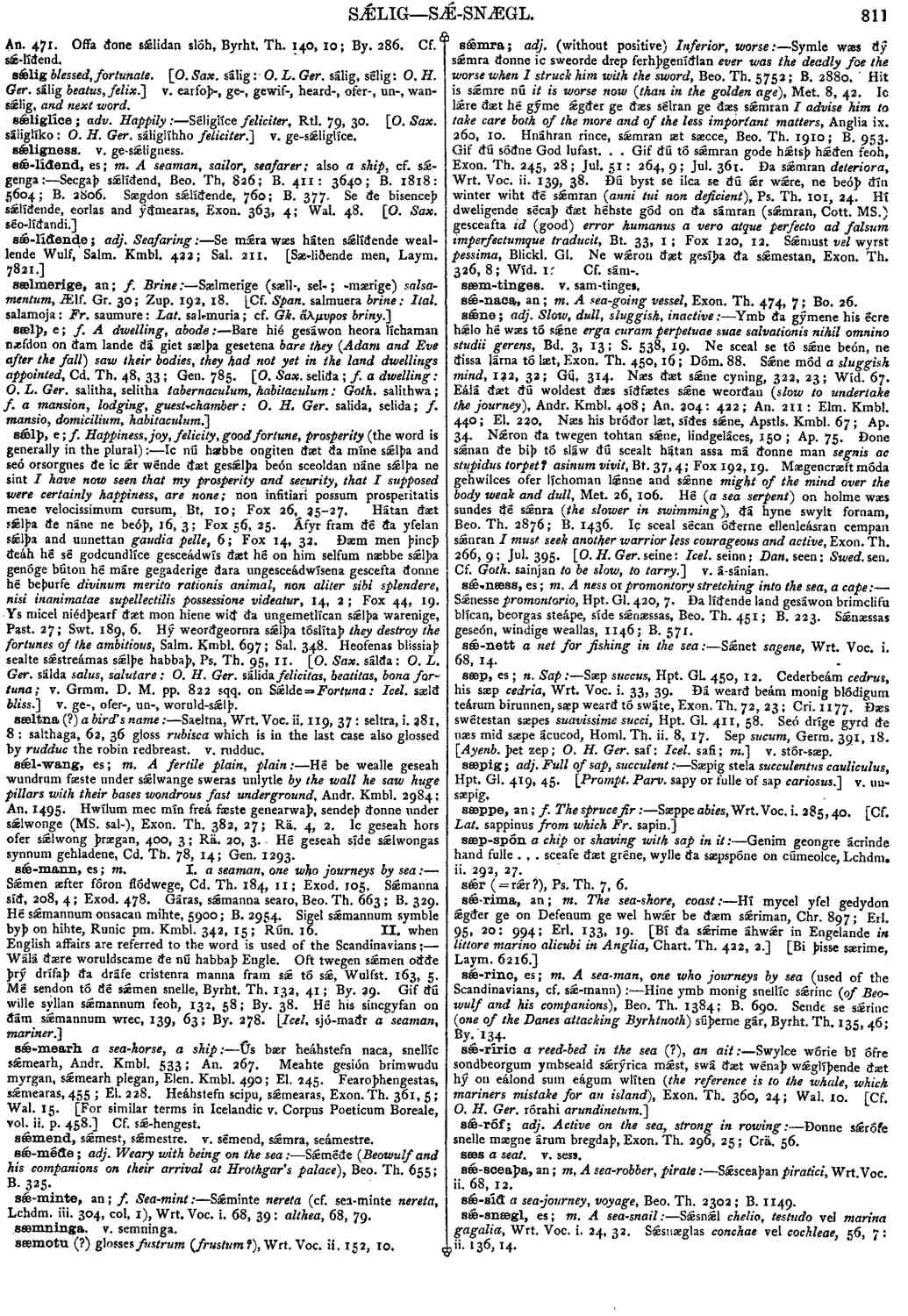sǽlþ
- noun [ feminine ]
-
Ic nú haebbe ongiten ðæt ða míne sǽlþa and seó orsorgnes ðe ic sǽr wénde ðæt gesǽlþa beón sceoldan náne sǽlba ne sint
I have now seen that my prosperity and security, that I supposed were certainly happiness, are none;
non infitiari possum prospetitatis meae velocissimum cursum,- Bt. 10; Fox 26, 25-27.
-
Hátan ðæt sǽlþa ðe náne ne beóþ,
- 16, 3; Fox 56, 25.
-
Áfyr fram ðé ía yfelan sǽlþa and unnettan
gaudia pelle,
- 6; Fox 14, 32.
-
Ðæm men þincþ ðeáh hé sé godcundlíce gesceádwis ðæt hé on him selfum næbbe sǽlþa genóge búton hé máre gegaderige ðara ungesceádwísena gescefta ðonne hé beþurfe
divinum merito rationis animal, non aliter sibi splendere, nisi inanimatae supellectilis possessione videatur,
- 14, 2 ; Fox 44, 19.
-
Ys micel niédþearf ðæt mon hiene wið ða ungemetlícan sǽlþa warenige,
- Past. 27; Swt. 189, 6.
-
Hý weorðgeornra sǽlþa tðslítaþ
they destroy the fortunes of the ambitious,
- Salm. Kmbl. 697; Sal. 348.
- Heofenas blissiaþ sealte sǽstreámas sǽlþe habbaþ. Ps. Th. 95, 11.
Bosworth, Joseph. “sǽlþ.” In An Anglo-Saxon Dictionary Online, edited by Thomas Northcote Toller, Christ Sean, and Ondřej Tichy. Prague: Faculty of Arts, Charles University, 2014. https://bosworthtoller.com/26232.
Checked: 0